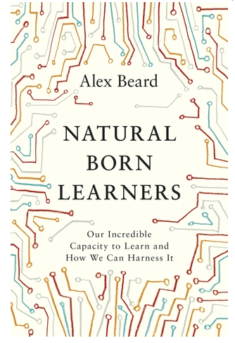💡 2-Sentence-Summary
Beard has visited schools on every continent of the earth, talked to the leading neuroscientists and experimental psychologists, and met the most fabled educators. In this book, he compares the experimental classes in Silicon Valley, public schools in US, Shanghai, Finland, Hongkong, and South Korea, and offers a comprehensive overview of the educational programs our children can benefit from or be victim of.
💭 What I think about it
I loved the book! It’s the best book to gain a broad overview of different education systems and philosophies around the globe. This book is absolutely underrated. I only discovered it because I met him through Teach For All – a global network of organisations to mobilise the leadership of teachers, kids, parents, principals and policymakers to improve learning in their communities for everyone.
🌟 Who benefits from reading this book?
Basically anyone interested in learning and education systems. It’s a well-written account of Beard’s journey of travelling and testing school systems around the globe.
📚 How the book changed my life
The book changed my understanding of different education systems and pointed me towards many other valuable resources I have yet to read and watch, e.g. this book by Brett Schilke, this TED Talk by Sugata Mitra , or this book by Kathy Hirsh-Pasek.
✍️ My Favorite Quotes
- The brain is alive, unruly, engaged in an unending process of inquiry.
- Schools borrow increasingly from paradigms of the factory or market, vaunting efficiency and competition.
- Taking care requires us to build our systems around shared values, not new technologies, framing them as ecosystems rather than corporations. The well-being of our species, and of our planet, depends on developing our social and emotional intelligence. We must learn to co-operate in building the future we wish to see
- Every child was born to learn, but our systems, rather than building on that potential, seemed to be inhibiting
- If a child can’t learn the way we teach, maybe we should teach the way they learn.
- The LA iPad fiasco called to mind an earlier case where every child in Thailand was given a tablet to aid their learning. The result? Thanks to a lack of teacher training, test scores got worse overall. Computers could transform learning – but only in the hands of expert practitioners.
- Schools shouldn’t ask, “How do I use this tool?” They need to ask, “What am I trying to achieve, can a tool help?”’
- Learning even prompted changes in our genes. Scientists have long recognised the nature-versus-nurture debate as fallacy. Genes are now known to ascribe a direction of travel and set limits on our growth (a baby chimp can’t grow into a human kid, however much it wants to), but they are expressed only in interaction with the environment.
- Today it no longer matters what you know, but what you learn.
- What can’t be counted still counts.
- The real reason Korean kids did so well on PISA, according to Ju-Ho Lee, was their indefatigable commitment to hard work and self-study. They succeeded in spite of schools.
- Learning to think meant knowing something, but above all it meant learning to doubt.
- Education is the answer. Schools aren’t to blame for the ills of our societies – we must redistribute wealth, tackle poverty at its roots, create a fairer, more ethical and sustainable world, alter the ideas that govern our actions – but they are the solution.
- Instead of teaching our kids to know, we need to teach them how to learn.
